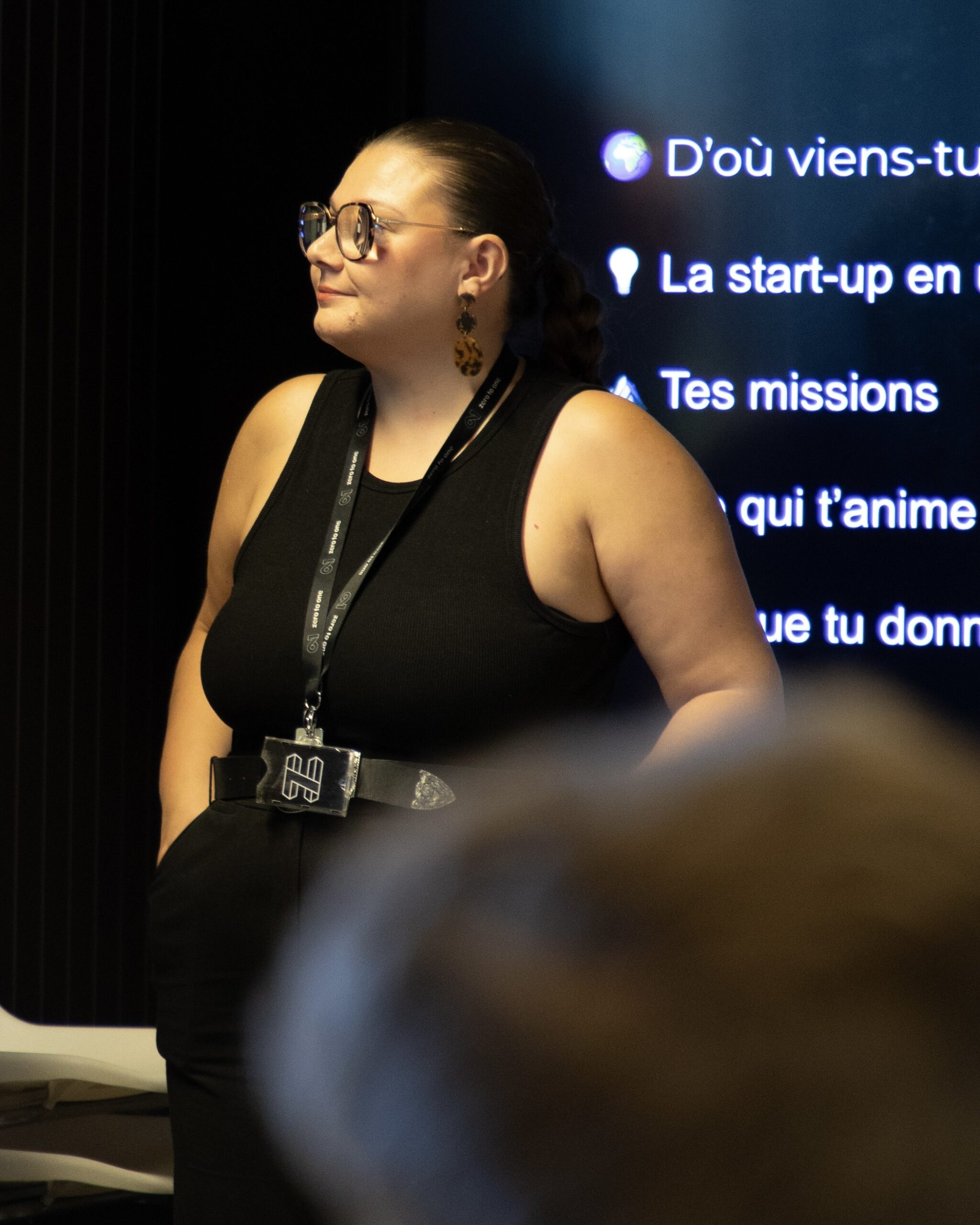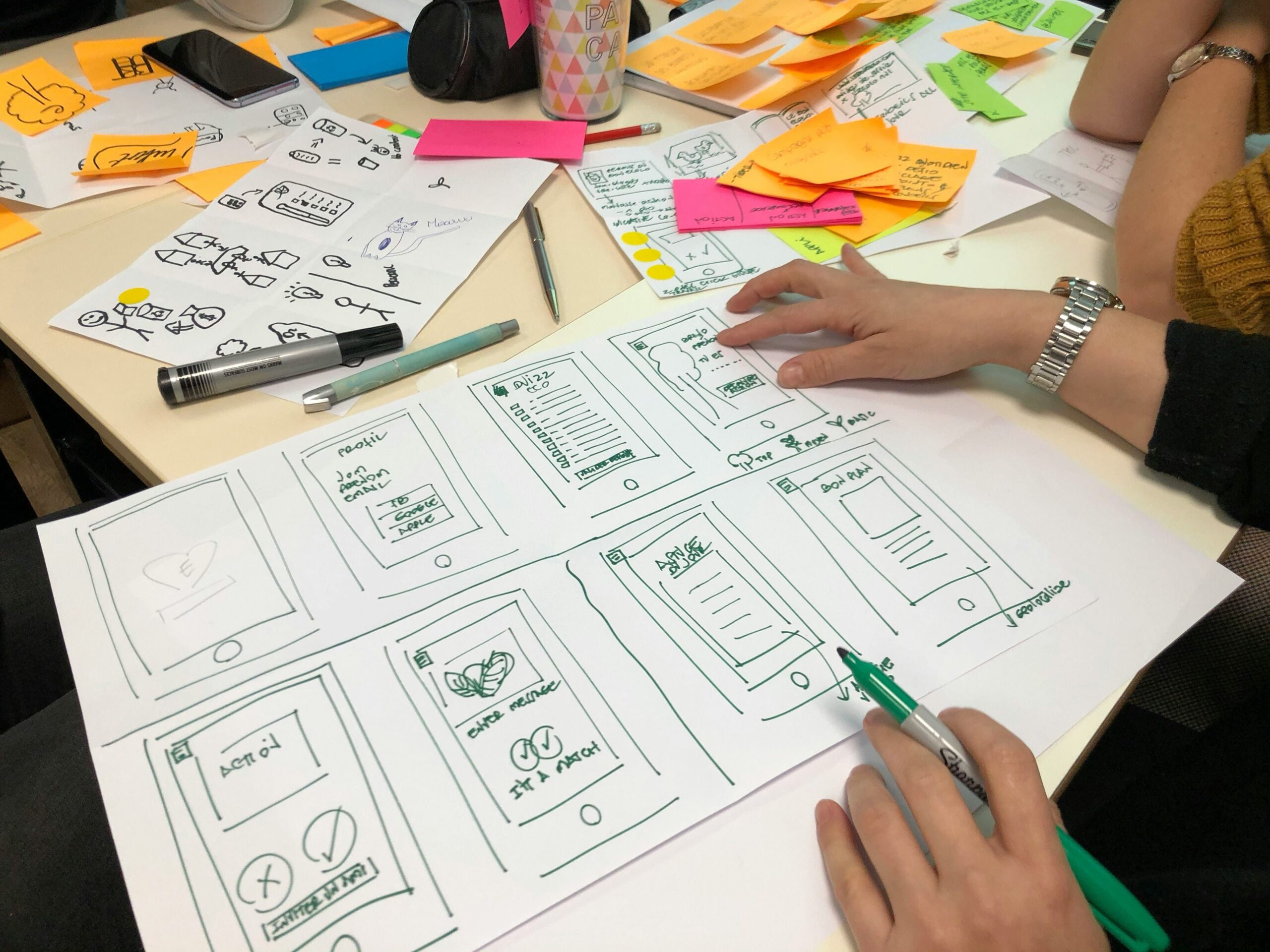Since 2016, Konexio has been offering digital training courses for people who are far from employment (refugees, young people from QPVs, people undergoing retraining, women, …). The association’s aim is to help them develop their skills, in order to promote their integration into the world of work. As part of the 13M program, we met Jean Guo, co-founder and CEO.
Hello Jean. Can you introduce yourself?
My name is Jean Guo, and I’m the co-founder of Konexio, which trains people who are far from employment in digital skills, from the most basic to the most advanced, in order to facilitate their socio-professional inclusion.
I arrived in the United States with my family at the age of five. During my childhood, I was directly confronted with the difficulties encountered when arriving in a new country, whether in terms of language, cultural differences or professional integration. My personal story was a strong inspiration for the creation of Konexio.
I studied at Stanford and then Harvard, and after university I worked as a consultant in San Francisco for tech companies. I arrived in France in 2015 to carry out research work at the Paris School of Economics.
In the course of my research, I carried out an evaluation of public health policies and social programs. When I went out into the field, I realized that there was a lack of solid connections between the front-line public services that support people towards employment and integration, and the people who need them to become self-sufficient.
What is the company’s mission?
We live in a fast-changing world. Our mission is to ensure that the people most affected by these changes are not the most vulnerable, and that we are all equal when it comes to digital technology.
That’s why we offer digital training, from the most basic skills to the most advanced. Our learners are people who are far from employment, digital and under-represented in the tech world. For example, we offer training in web development (Devéloppeur.euse Web) or systems and networks (TSSR).
We work a lot on diversity issues in tech: we want to promote equal opportunities and ensure that you don’t always see the same profile or the same type of person in these professions. All our training courses focus on soft skills and learning the social codes of the working world.
How does Konexio reach the most digitally excluded? What’s your strategy for getting them to identify you?
Today, there are three links in the chain that bring people to us.
Firstly, we work in close collaboration with local public bodies who refer their beneficiaries to Konexio – Missions Locales, Pôle Emploi etc. Secondly, we know that 40% of our students come from word-of-mouth. Finally, many people identify us through our presence on social networks.
Since our launch, we have completed over 6,000 training courses, launched more than 350 promotions and delivered some 300,000 hours of training.
13 million French people are digitally excluded. What role do you see the private sector playing in reducing this figure?
In my opinion, companies have a responsibility to work on and commit to digital inclusion issues, because the consequences have a direct impact on them, in their ability to recruit for example.
They must therefore finance training courses and engage in support programs to train their employees or future employees and thus ensure their employability.
Since the birth of Konexio in 2016, what are the biggest barriers to digital inclusion that you’ve identified?
The most common obstacle is knowledge. Many people think they’ve mastered digital technology because they have certain skills, and therefore believe that training isn’t necessary. In practice, however, we see a number of shortcomings.
I’m thinking, for example, of the younger generation, who are very comfortable on social networks, but who sometimes have difficulty using a computer. One of Konexio’s roles is to make this type of audience aware of the importance of training, to multiply their digital skills and stay (or upgrade) up to date.
It’s also a question of anticipation: we all need to get to grips with the problem. The Covid crisis has accentuated the digital divide, and companies need to train their staff to ensure their employability.
Today, Konexio is present in France, Kenya, Malawi and Jordan. Where does France stand in the global digital inclusion landscape?
Each country has its own specific characteristics, linked in particular to living conditions, economic situation and culture.
What is universal is the digital fragility that exists everywhere. In my opinion, the most important thing, whatever the country, is to be as creative as possible in finding solutions.
Internationally, for example, we guide our learners into the freelance market, which has really exploded in recent years with the flexibility of working patterns. For people with few opportunities around them, this is a very attractive model for achieving financial independence.
What advice can you give to entrepreneurs who want to invent new models for bridging the digital divide?
The best advice I can give is “start before you’re ready (editor’s note: start before you’re ready). When setting up a business, we often tend to censor ourselves and put the brakes on our development. You’re never really ready, so I think you have to get going as soon as the MVP is ready, and 90% of the product will come with iterations.
Finally, let’s talk about 13M. What do you think of the projects you’ve supported and what advice do you have for their development?
First and foremost, benefiting from a dedicated program like yours is a real opportunity for entrepreneurship.
What I really appreciate is the richness and variety of the solutions and projects supported (in terms of equipment, training, etc.).
I’m convinced of their potential, and I hope we can build bridges with Konexio’s actions.
In conclusion, and this is also our own way of working, the test & learn approach is the one that should guide each and every one of us.




